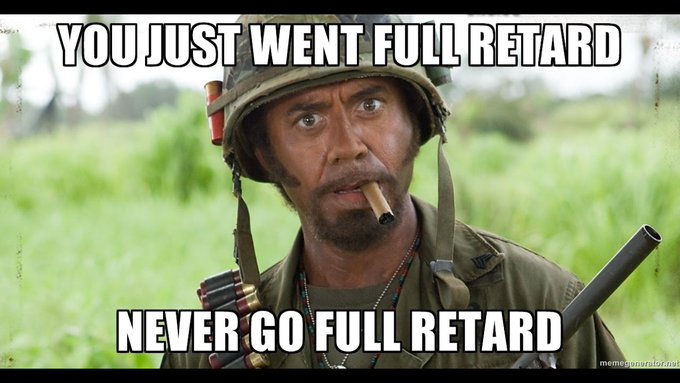'Disastrous'
copyright bill vote approved

BBC,
21
June, 2018
A
committee of MEPs has voted to accept major changes to European
copyright law, which experts say could change the nature of the
internet.
They
voted to approve the controversial Article 13, which critics warn
could put an end to memes, remixes and other user-generated content.
Article
11, requiring online platforms to pay publishers a fee if they link
to their news content, was also approved.
One
organisation opposed to the changes called it a "dark day".
The
European Parliament's Committee on Legal Affairs voted by 15 votes to
10 to adopt Article 13 and by 13 votes to 12 to adopt Article 11.
It
will now go to the wider European Parliament to vote on in July.
'Censorship'
Last
week, 70 influential tech leaders, including Vint Cerf and Tim
Berners-Lee, signed a letter opposing Article 13, which they called
"an imminent threat to the future" of the internet.
Article
13 puts more onus on websites to enforce copyright and could mean
that every online platform that allows users to post text, sounds,
code or images will need some form of content-recognition system to
review all material that users upload.
Activist
Cory Doctorow has called it a "foolish, terrible idea".
Writing
on online news website BoingBoing, he said: "No filter exists
that can even approximate this. And the closest equivalents are
mostly run by American companies, meaning that US big tech is going
to get to spy on everything Europeans post and decide what gets
censored and what doesn't."
Article
11 has been called the "link tax" by opponents.
Designed
to limit the power over news publishers that tech giants such as
Facebook and Google have, it requires online platforms to pay
publishers a fee if they link to their news content.
The
theory is that this would help support smaller news publishers and
drive users to their homepages rather than directly to their news
stories.
But
critics say it fails to clearly define what constitutes a link and
could be manipulated by governments to curb freedom of speech.
After
the vote, US not-for-profit organisation Creative Commons, which aims
to make more content free for others to share, called it a "dark
day for the open web".
.@EP_Legal has adopted both Article 11 (#linktax) and Article 13 (#CensorshipMachines). It’s a dark day for the open web, but the fight will continue in the upcoming plenary vote in the European Parliament. #SaveYourInternet #SaveTheLink #FixCopyright
Another
Twitter user tweeted: "15 MEPs voted for upload filtering. They
understand the internet better than the people who invented it,
apparently."
15 MEPs in the @EP_Legal Committee of the @Europarl_EN voted for upload filtering. They understand the internet better than the people who invented it, apparently. #saveyourinternet #fixcopyright
Open
Rights executive director Jim Killock told the BBC: "Article 13
must go. The EU parliament will have another chance to remove this
dreadful law.
"The
EU parliament's duty is to defend citizens from unfair and unjust
laws.
"MEPs
must reject this law, which would create a robo-copyright regime
intended to zap any image, text, meme or video that appears to
include copyright material, even when it is entirely legal material."
But
publishers, including the Independent Music Companies Association
(Impala) welcomed the vote.
"This
is a strong and unambiguous message sent by the European Parliament,"
said executive chair Helen Smith.
"It
clarifies what the music sector has been saying for years: if you are
in the business of distributing music or other creative works, you
need a licence, clear and simple. It's time for the digital market to
catch up with progress."
Memes
banned. Remixes outlawed. Parody videos removed. Critics say this
would be the outcome of the EU adopting two controversial copyright
rules that were just approved in committee.
Critics
are unhappy with Articles 11 and 13 of the EU Copyright Directive,
which were cleared by the Legal Affairs Committee of the European
Parliament on Wednesday and now face a floor vote scheduled sometime
in July.
Dubbed
the “link tax” by critics, Article 11 would require online
platforms to pay for links to news and other content they refer to.
While proponents said it was intended to make Google and Facebook
share the profit they make with news organizations that are
struggling in the modern market, critics have pointed out it could
penalize linking to content for the purpose of criticism or
commentary. It was narrowly approved by the committee, with 13 votes
in favor and 12 votes against.
“There
is a big problem if all those who bring our cultural diversity in
Europe to life... can no longer live from their work because online
platforms are not prepared to involve them properly," Ehler said
in a statement.
Article
13 is even more controversial, requiring the automatic removal of any
material that appears to violate copyright. Critics say this would
condemn memes, sampling, news footage and even public domain
parliamentary recordings. Platforms would also be held legally liable
for copyright violations by their users. This measure advanced with
15 votes in favor and 10 opposed.
Even
as Article 11 would force online platforms to pay for content,
Article 13 would result in stifling competition and arguably further
empower major players like Google or Facebook, which, unlike smaller
fish, would have the money and expertise to implement automated
censorship and user moderation required to comply with the law. The
platforms would also be incentivized to err on the side of censorship
to avoid penalties for copyright infringement by their users.
“These
measures would seriously undermine basic internet freedoms,"
said German MEP Julia Reda (Pirate Party-Greens), a prominent critic
of both articles.
A
number of internet luminaries, including WWW inventor Tim Berners-Lee
and Wikipedia founder Jimmy Wales, have also spoken out against
Article 13.
“By
requiring Internet platforms to perform automatic filtering all of
the content that their users upload, Article 13 takes an
unprecedented step towards the transformation of the Internet, from
an open platform for sharing and innovation, into a tool for the
automated surveillance and control of its users,” said the letter
signed by Berners-Lee, Wales and dozens of others that was sent to
MEPs last week.
Author
and activist Cory Doctorow called it a ”foolish, terrible idea,”
pointing out that the only filters even remotely able to remove
content as required by the law are currently run by American
companies, “meaning that US big tech is going to get to spy on
everything Europeans post and decide what gets censored and what
doesn't.”
There
is no way for AI to decide whether the use of copyrighted work falls
within legal exemptions such as quotations or parody. Those
exceptions are not consistent across the EU’s 28 member states, nor
does the EU have US-style fair use laws. This means that even if the
copyright owner does not object to the use of content in memes,
remixes, mashups or other creative work, the creators would still
technically violate the law.





No comments:
Post a Comment
Note: only a member of this blog may post a comment.